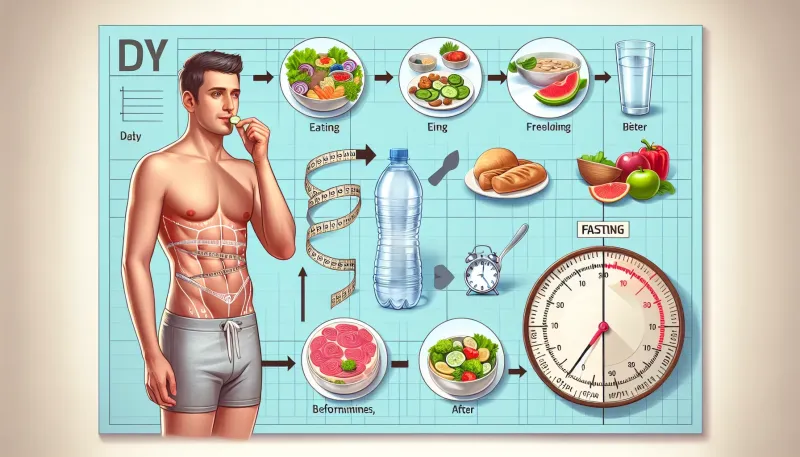Intermittent Fasting Weight Loss: How to Shed Pounds Effectively

Discover how intermittent fasting can aid in weight loss. Learn the different methods, benefits, and tips to effectively shed pounds with intermittent fasting.
Introduction
Intermittent fasting (IF) has rapidly gained popularity as an effective weight loss strategy. It involves cycling between periods of eating and fasting. Unlike traditional dieting, which often focuses on what you eat, intermittent fasting emphasizes when you eat. This article explores how intermittent fasting can aid in weight loss, various methods to practice it, and tips for success.
What is Intermittent Fasting?
The Concept and Science Behind IF
Intermittent fasting is not a diet but a pattern of eating. The underlying principle is to create periods of fasting that push the body to use stored fat for energy. This process, known as metabolic switching, helps reduce fat stores and contributes to weight loss.
Popular Methods of Intermittent Fasting
- 16/8 Method: Fast for 16 hours and eat within an 8-hour window.
- 5:2 Method: Eat normally for five days and restrict calories to about 500-600 on two non-consecutive days.
- Eat-Stop-Eat: Fast for 24 hours once or twice a week.
- Alternate Day Fasting: Alternate between days of normal eating and days of fasting or severely restricted calories.
Benefits of Intermittent Fasting for Weight Loss
1. Calorie Restriction and Weight Loss
One of the primary reasons intermittent fasting aids in weight loss is that it naturally reduces calorie intake. By limiting the hours during which you can eat, it's easier to consume fewer calories without specifically counting them.
2. Improved Metabolic Health
Intermittent fasting can improve various metabolic markers, including insulin sensitivity, which helps the body better manage blood sugar levels. This improvement further aids in weight management.
3. Hormonal Changes
Fasting influences several hormones that are critical for weight loss. For instance, it increases norepinephrine, a hormone that boosts fat burning, and reduces levels of insulin, allowing for more efficient fat utilization.
Potential Challenges and Solutions
Managing Hunger and Cravings
Initially, managing hunger during fasting periods can be challenging. However, these feelings often diminish as the body adjusts. Drinking water, herbal teas, or black coffee can help mitigate hunger.
Maintaining Nutrient Intake
Ensuring you get the necessary nutrients within your eating window is crucial. Focus on eating nutrient-dense foods like fruits, vegetables, lean proteins, and whole grains.
Tips for Effective Intermittent Fasting Weight Loss
Start Slow
For beginners, it may be beneficial to start with a less restrictive method, such as the 16/8 method, before trying longer fasting periods.
Stay Hydrated
Drink plenty of water throughout the day to stay hydrated and help manage hunger.
Listen to Your Body
Pay attention to your body's signals. If you feel lightheaded or unwell, consider adjusting your fasting schedule.
Combine with Physical Activity
Include regular physical activity to boost weight loss and improve overall health. Ensure your workouts align with your eating windows for optimal energy levels.
Conclusion
Intermittent fasting can be a powerful tool for weight loss when done correctly. By understanding the various methods, benefits, and potential challenges, you can tailor your approach to fit your lifestyle and goals. Remember to stay informed, listen to your body, and consult a healthcare professional before starting any new dietary regimen.





















